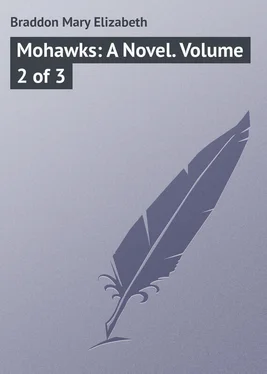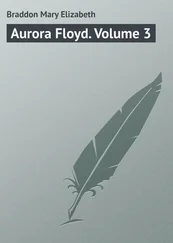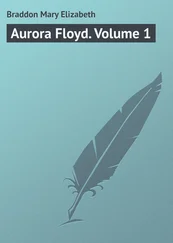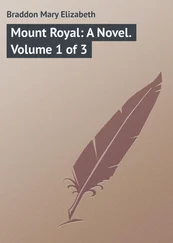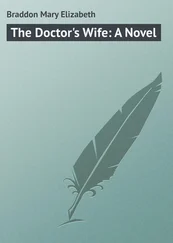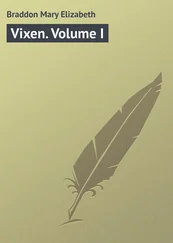Mary Braddon - Mohawks - A Novel. Volume 2 of 3
Здесь есть возможность читать онлайн «Mary Braddon - Mohawks - A Novel. Volume 2 of 3» — ознакомительный отрывок электронной книги совершенно бесплатно, а после прочтения отрывка купить полную версию. В некоторых случаях можно слушать аудио, скачать через торрент в формате fb2 и присутствует краткое содержание. Жанр: foreign_prose, на английском языке. Описание произведения, (предисловие) а так же отзывы посетителей доступны на портале библиотеки ЛибКат.
- Название:Mohawks: A Novel. Volume 2 of 3
- Автор:
- Жанр:
- Год:неизвестен
- ISBN:нет данных
- Рейтинг книги:3 / 5. Голосов: 1
-
Избранное:Добавить в избранное
- Отзывы:
-
Ваша оценка:
- 60
- 1
- 2
- 3
- 4
- 5
Mohawks: A Novel. Volume 2 of 3: краткое содержание, описание и аннотация
Предлагаем к чтению аннотацию, описание, краткое содержание или предисловие (зависит от того, что написал сам автор книги «Mohawks: A Novel. Volume 2 of 3»). Если вы не нашли необходимую информацию о книге — напишите в комментариях, мы постараемся отыскать её.
Mohawks: A Novel. Volume 2 of 3 — читать онлайн ознакомительный отрывок
Ниже представлен текст книги, разбитый по страницам. Система сохранения места последней прочитанной страницы, позволяет с удобством читать онлайн бесплатно книгу «Mohawks: A Novel. Volume 2 of 3», без необходимости каждый раз заново искать на чём Вы остановились. Поставьте закладку, и сможете в любой момент перейти на страницу, на которой закончили чтение.
Интервал:
Закладка:
Durnford parted with the journalist in disappointment and disgust. He knew not to whom else he could apply for help in his investigation of an unknown past. He knew not where else to turn for information, was altogether at a loss how to proceed, when a chance glimpse of Jemmy Ludderly's ferret-face in the eighteenpenny gallery at a revival of Steele's Conscious Lovers reminded him that here was one who belonged to a lower grade of letters, or, at all events, to a less prosperous group of scribblers and artists, than that pseudo-fashionable circle which Mr. Philter adorned. Ludderly claimed no acquaintance with modish beauties or elderly demi-reps, waved no clouded cane, affected no mincing walk, flourished no amber snuffbox, neither scented himself with pulvilio nor expended a month's pay on a periwig. Mr. Ludderly wore the same suit of clothes from January to December, and on to a second January and a second December, would they but endure as long. Whatever money he earned he spent upon the inner rather than the outer man, drank deep in cosy tavern parlours when he was in funds, and toasted his herring or his rasher in the solitude of his garret when he was hard up, and managed to maintain a contented spirit at all times. Nothing short of absolute hunger could have spoilt his temper.
Durnford called in May's Buildings next day, and unearthed the caricaturist and lampooner in his kennel. It was Mr. Ludderly's usual breakfast-hour, and he was meekly cooking his morning rasher in an easy attire of shirt and breeches, with ungartered stockings, and the most dilapidated slippers Herrick had ever seen off a dust-heap. But the man of letters was in no wise embarrassed by his unsophisticated surroundings. He received his visitor with a friendly air, and insisted on vacating the one serviceable chair for his accommodation, while he balanced himself adroitly upon a seat from whose wooden framework the worn-out rushes hung in a picturesque fringe.
"Don't mention it," said Jimmy, when Herrick apologised for disturbing him. "There is the bed yonder," pointing to the disordered pallet with its ragged patchwork coverlet, "a most comfortable seat at all times. Pardon me if I am for the moment preoccupied by the preparation of my modest meal," laying down his toasting-fork, and filling a little black teapot from the steaming kettle. "I am no sybarite or epicure, but I can offer you a cup of the choicest tea in London. 'Tis bohea, at a guinea a pound, from the Barber's Pole in Southampton Street. 'Twas given me t'other day by a dear creature whose latest adventure offered particular attractions to the comic Muse, but for whose sweet sake I restrained my wit."
"Boileau could not have been more gallant. And was Thalia gagged for a pound of bohea?"
"O sir, I do not say there was no solider consideration. The tea was the tilly in. I beg you to taste a dish of it."
He brought a second cup and saucer from a corner cupboard, which was at once larder, cellar, and pantry, and poured out some tea for his guest.
"I thought you were addicted to somewhat stronger liquor, Mr. Ludderly," said Durnford. "Burgundy, Champagne, or Hollands, for instance."
"My dear sir, over-night I will steep myself in an ocean of Burgundy, and will sing you that fine old French drinking-song;" and he trolled in a worn-out baritone,
"'Beau nez, dont les rubis ont cousté mainte pipe
De vin blanc et clairet,
Et duquel la couleur richement participe
De rouge et violet.'
"But I am no morning dram-drinker. 'Tis from the teapot I take my noontide inspiration. Yet I know not if bohea be not as fatal to the nerves as Hollands. I have heard that Lord Bristol attributes his son Hervey's ill-health to the use of that detestable and poisonous plant tea. Those were his very words, as told me by no less a person than Lord Hervey's valet, who frequents my favourite tavern. Well, if 'tis poison, 'tis a pleasant poison, and keeps the brain alive while it kills the body. I learnt the habit of bohea-bibbing from a sprig of good family who chummed with me twenty years ago in this very garret. He was a delicate effeminate creature, brought up gingerly by a widowed mother, and then flung upon the world to waste a small patrimony and starve when it was gone."
Durnford put down his cup hastily and stared the speaker in the face.
"A friend of twenty years back!" he said. "What became of him?"
Ludderly shrugged his shoulders, and shook his head.
"I know not, unless he went as sailor or soldier, and flung away a life which he could not maintain as a civilian. He had sunk pretty low when he became my fellow-lodger, and was trying to live by his pen. He had inherited a strong attachment to the King over the water, and wrote on the losing side, a fatal mistake, till he turned his coat at my advice, and scribbled for the Whigs. I am at heart a friend to the Stuarts, but I have got my bread by abusing them. Half my living at one time was made out of Father Peter and the warming-pan."
"How long is it since you saw this gentleman?"
"He disappeared from my ken in the autumn of the year nine, the year of Malplaquet. He left London on a pilgrimage to a wealthy relative in Hampshire, whom he fancied his destitution might move to pity; but I thought that if the gentleman were a man of the world, he was more likely to set his dogs at my poor friend than to take him in and feed him. He was very low by that time, and he had an impediment to a relation's hospitality which I should deem fatal."
"What kind of impediment?"
"A motherless baby of a year and a half old – you need not blush, sir, 'twas born in wedlock – the offspring of a foolish runaway match made abroad, where my friend was bear-leader to a young nobleman."
"By heaven, it is the very man!" cried Herrick. "I thought as much from the beginning. Was not your friend's wife called Belinda?"
"That was her name. Many a night have I heard him utter it, half-strangled in a sob, as he lay dreaming. The poor girl died in childbirth at Montpellier, where they were living for cheapness. What do you know of him?"
"Nothing – except that if he was the man I think, he died on the Portsmouth road, died of want and exhaustion, and was found lying stark and cold, with his baby daughter beside him."
"Do you know the date of his death?"
"Yes, 'twas the twenty-eighth of September."
"And it was on the fifteenth he took his child from her nurse at Chelsea, over against Mrs. Gwynne's Hospital, and started on his wild-goose chase after a kinsman's benevolence. He thought his relative would melt at sight of the child, which shows how little he knew of the world, poor wretch! Doubtless he arrived at his destination, had the door shut upon him, civilly or uncivilly – 'twould be the same as to result – and turned his face Londonwards again, to tramp back to his den here, where he knew there was at least shelter for him. He was weak and ill when he left London, and he was all but penniless, and intended to make the journey on foot. I am not surprised that he died on the road. I am not surprised; but even after eighteen years, I am sorry."
Honest Jemmy wiped a tear or two from his unwashed cheek with the back of a grimy hand.
"Where did they find him, sir?" he asked, after a brief silence.
"On Flamestead Common, thirty miles from London."
"He had come all the way from his kinsman's seat on the other side of Winchester. The man was a distant cousin of his father's. 'Twas not a close tie; but common humanity might have afforded him at least a temporary shelter."
"My dear Mr. Ludderly, common humanity is the most uncommon virtue I know of; 'tis rarer than common sense. Pray let me hear more of your friend. Did he ever tell you of his wife's family and origin?"
"Very little. He was strangely silent about her, and as I knew he lamented her death with an intensity of grief that was singular in a young widower, I shrank from irritating an open wound by any impertinent questions. All I ever heard of the lady is that she was an Italian, and that if she had had her rights she would have enjoyed a handsome fortune. It is my private opinion that he stole her from her father's house, and so blighted her chance of wealth and favour."
Читать дальшеИнтервал:
Закладка:
Похожие книги на «Mohawks: A Novel. Volume 2 of 3»
Представляем Вашему вниманию похожие книги на «Mohawks: A Novel. Volume 2 of 3» списком для выбора. Мы отобрали схожую по названию и смыслу литературу в надежде предоставить читателям больше вариантов отыскать новые, интересные, ещё непрочитанные произведения.
Обсуждение, отзывы о книге «Mohawks: A Novel. Volume 2 of 3» и просто собственные мнения читателей. Оставьте ваши комментарии, напишите, что Вы думаете о произведении, его смысле или главных героях. Укажите что конкретно понравилось, а что нет, и почему Вы так считаете.
